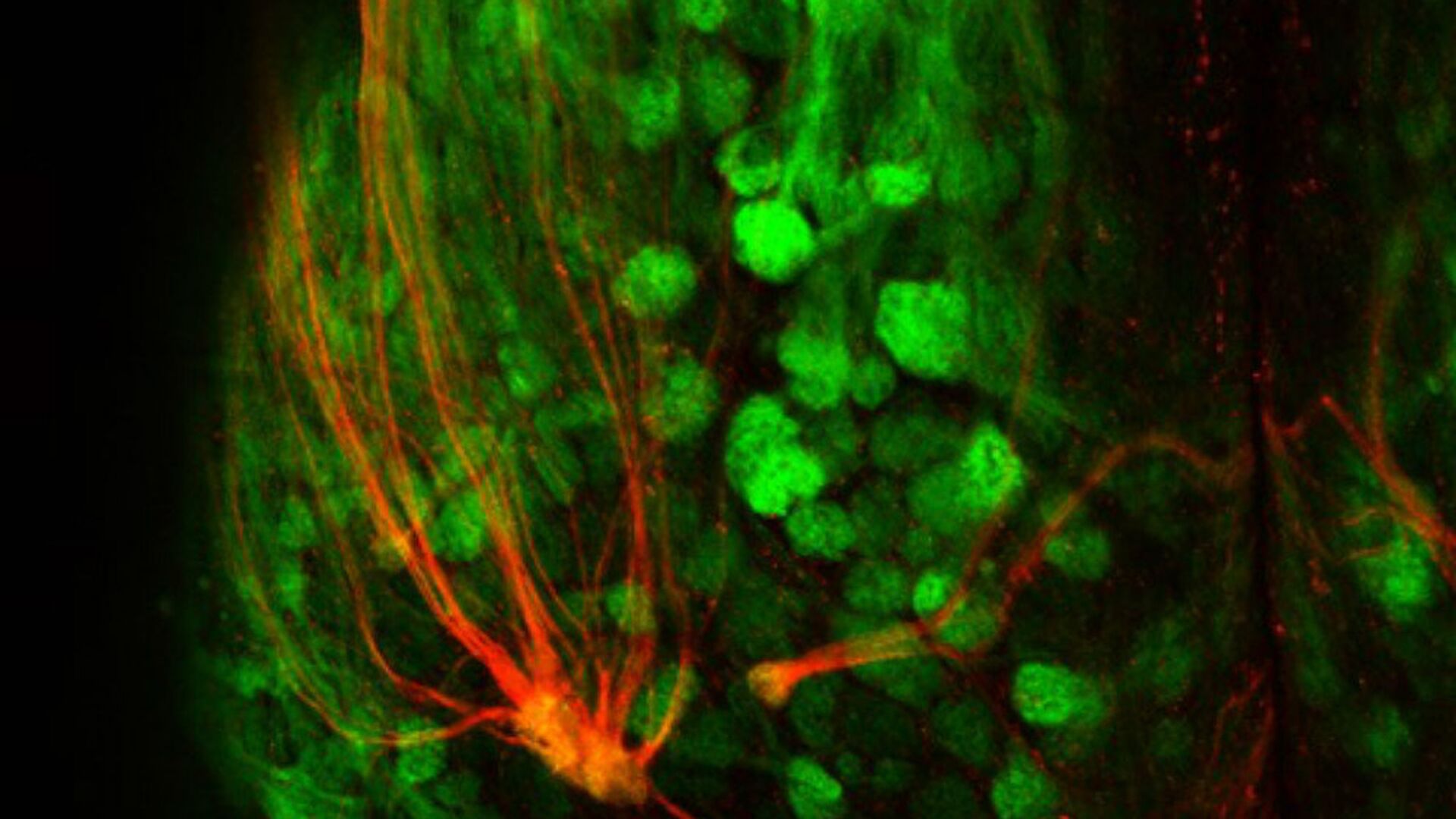https://sputnikglobe.com/20220223/first-ever-scan-of-dying-human-brain-raises-question-about-life-flashing-before-our-eyes-1093294402.html
First-Ever Scan of Dying Human Brain Raises Question About Life Flashing Before Our Eyes
First-Ever Scan of Dying Human Brain Raises Question About Life Flashing Before Our Eyes
Sputnik International
The study was carried out sort of by accident. An 87-year-old man suffering from epilepsy was hooked up to an electroencephalogram, which records brain activity. During the procedure the patient had a heart attack and died, but the machine kept working recording his brain activity
2022-02-23T08:36+0000
2022-02-23T08:36+0000
2022-10-19T18:54+0000
science & tech
brain
epilepsy
study
death
life
https://cdn1.img.sputnikglobe.com/img/104276/09/1042760985_0:181:1000:744_1920x0_80_0_0_b0920097195f274c2caa8628fbdb85c4.jpg
An international team of scientists claims the first-ever scan of a dying human brain has revealed fascinating details. According to the findings of their study, published on Tuesday in the journal Frontiers in Aging Neuroscience, just before and after the heart stopped working researchers saw increased brain activity similar to what occurs when we concentrate, dream, recall memories, and meditate.According to Ajmal Zemmar, a neurosurgeon at the University of Louisville, who led the study, the findings raise the question about whether our lives "do flash before our eyes" in the final moments.Researchers say the findings also challenge the understanding of when exactly life ends as well as generates important questions such as those related to the timing of organ donation.Scientists note, however, that more studies are needed as the subject of their study was a man suffering from epilepsy. His brain had been damaged as a result of seizures and swelling, which complicate the interpretation of data.
Sputnik International
feedback@sputniknews.com
+74956456601
MIA „Rossiya Segodnya“
2022
News
en_EN
Sputnik International
feedback@sputniknews.com
+74956456601
MIA „Rossiya Segodnya“
Sputnik International
feedback@sputniknews.com
+74956456601
MIA „Rossiya Segodnya“
an international team of scientists, according to the findings, first-ever scan, published in the journal, increased brain activity,
an international team of scientists, according to the findings, first-ever scan, published in the journal, increased brain activity,
First-Ever Scan of Dying Human Brain Raises Question About Life Flashing Before Our Eyes
08:36 GMT 23.02.2022 (Updated: 18:54 GMT 19.10.2022) The study was sort of carried out by accident. An 87-year-old man suffering from epilepsy was hooked up to an electroencephalogram, which records brain activity. During the procedure the patient had a heart attack and died, but the machine kept working, recording his brain activity, which allowed scientists to then analyse it.
An international team of scientists claims the first-ever scan of a dying human
brain has revealed fascinating details. According to the findings of their study, published on Tuesday in the journal
Frontiers in Aging Neuroscience, just before and after the heart stopped working researchers saw increased brain activity similar to what occurs when we concentrate, dream, recall memories, and meditate.
"[The] brain may remain active and coordinated during and even after the transition to death and may even be programmed to orchestrate the whole ordeal", the study reads.
According to Ajmal Zemmar, a neurosurgeon at the University of Louisville, who led the study, the findings raise the question about whether our lives "do flash before our eyes"
in the final moments.
"Something we may learn from this research is that, although our loved ones have their eyes closed and are ready to leave us to rest, their brains may be replaying some of the nicest moments they experienced in their lives", he said.
Researchers say the findings also challenge the understanding of when exactly life ends as well as generates important questions such as those related to the timing of organ donation.
Scientists note, however, that more studies are needed as the subject of their study was a man
suffering from epilepsy. His brain had been damaged as a result of seizures and swelling, which complicate the interpretation of data.

